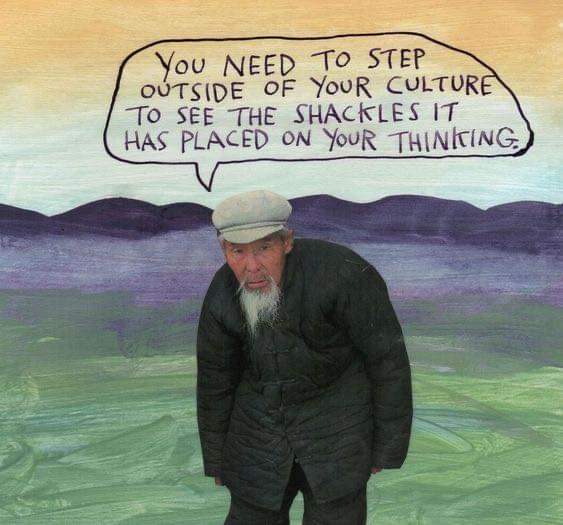The blinding effect of mainstream ideology, whether it’s neoliberalism, conspiracy-laced #spirituality, or rigid #geekproblem worship. These all act as barriers to change, keeping people locked in reactive cycles instead of building something different.
The #deathcult (neoliberalism) ensures its survival by designing failure, carbon offsetting, cap-and-trade, plastic recycling, all engineered to look like solutions while maintaining the status quo. These weren’t mistakes; they were intentional. The same happens in tech, where #encryptionists believe they’re liberating people while locking them into opaque, controlled, isolated paths. Security as fear, rather than trust.
What do we do differently now? We have to stop playing by their rules, whether it’s cancel culture’s purity tests, the process geek bureaucracy, or liberal progressives too afraid to act outside the acceptable neoliberal framework. That means:
- Break from #mainstreaming narratives – Stop looking to “official” solutions when they are structured to fail.
- Stop feeding fear, cowardice, and greed – Recognize when “safe” choices are actually surrendering power to systems of control.
- Step into federated, trust-based models – #openweb and #4opens approaches don’t just shift power; they change how power operates.
Mediating the #geekproblem is core, we have the tools to build alternatives, but the very people who have power to make the change happen are often blinded by their own logic traps, trapped in a false neutrality that serves power, or in rigid frameworks that make real-world change impossible. If we can challenge this blindness, we can bring them into broader movements instead of leaving them locked in their own subcultures.
- Non-geeks need pathways to access, understand, and shape technology.
- Decentralisation and federated trust models should be built with social movements, not just coders.
The #4opens is a path, the commons-based approach to software is an example of an alternative that works. The stagnant ideology of capitalism blocks innovation that already exists in open, federated models. What we need to compost is the blinded majority keeps trying to push radical tech back into the broken frameworks they understand instead of embracing real alternatives. That’s the cycle we need to break.
If we don’t step outside our own ideological traps, we won’t see the paths that already exist. The world doesn’t have to be this way, but we need to start living the alternatives, not just critiquing the failures.
